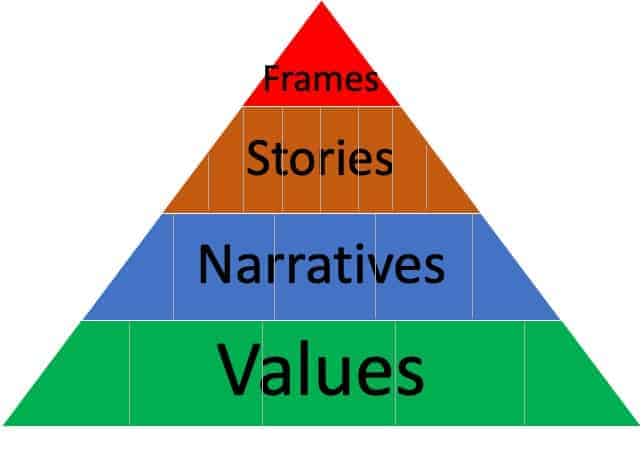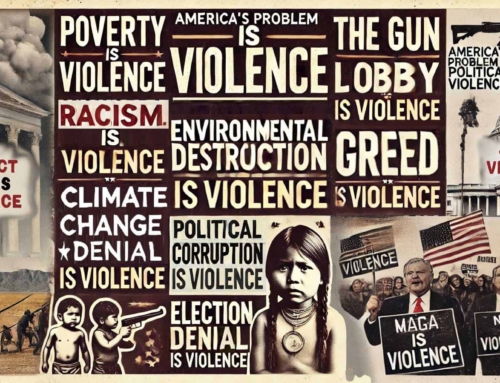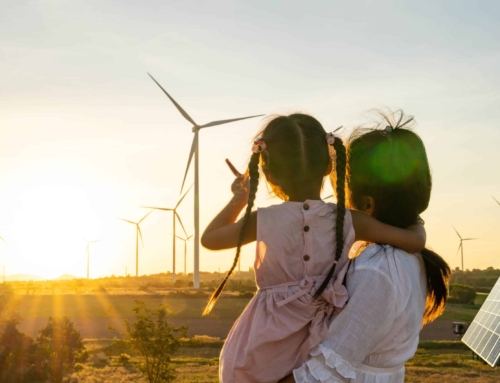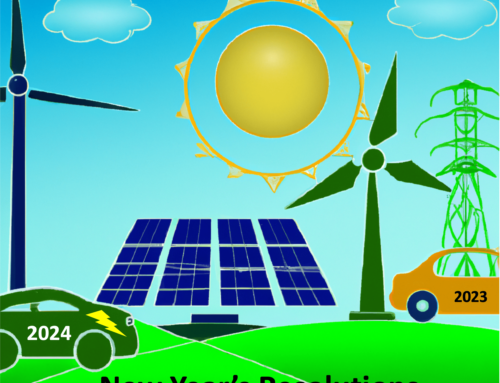Part II
One day a friend of mine was helping me refine my climate talks approach. He asked me why I was interested in working in the climate movement. It’s easy I said, “I want to help others.”
Then he did something very valuable for me.
He asked me why I wanted to help others? Since he wasn’t satisfied with my first answer, I thought a little bit deeper. I answered that it was because people were in trouble around the world, and would suffer as a result of the climate crisis. You can guess what happened next?
He asked me “why” again. Why I cared about suffering people around the world? I stopped thinking at this point and began to check how I felt. I told him it was because I believe in the dignity and sanctity of life. Then I added that I was beginning to see their pain in the potential harm my grandkids might face. He said, “That’s called empathy. It’s one of your values.”
He was practicing the “Three Why’s” question as a means to get to the core values that drove my passion for climate activism. Like peeling and onion, the first layer always seems protective. In messaging, it’s important to get to the real values underneath.
Then, he asked me to tell him a story of when I had experienced the value of empathy. Either in giving or receiving. At the risk of exposing my own white privilege and ignorance, I thought immediately about Standing Rock, and the Lakota that I had stood next to in the fight against the Dakota Access Pipeline. Despite an oppressive genocidal history by whites, they treated me, a white man, with dignity. “So that’s just one of your climate stories,” my friend said. “But so what?”
“What do you mean, so what?” I was getting a little frustrated.
You told me a nice story about what it feels like to be treated with respect as a person in the minority, but how does that change things? How does it relate to the Dakota Access Pipeline, slowing the climate crisis or justice? What dominant narrative does it challenge? What vision do you have about the way the world should be? When I thought about it, my story may have challenged the idea that regardless of the color of our skin, where we come from or where we live, that any job or corporation is not more important than the dignity and humanity of those affected or exploited in the process. It was a climate justice and inclusion narrative. Clearly my story needed more work.
Our vision of what we’d like to see in the world is often missing from our stories. Vision is our belief in a set of values projected into the future. What kind of a world do we want? Yet our vision can get trapped in our own cynicism. The climate crisis seems too big, too scary, or too hard, so we talk ourselves into believing that either we can’t make a difference or it can’t be solved. While it’s essential to add vision (values), it is also essential to say how we’ve used these values to succeed in the past. For example, we have been able to expand our right to vote, or decriminalize who we love, or pass the clean water act. By acknowledging the difficulties, but also the successes of the past, we make the future possible.
Some of the core values (non-exclusive) on which the climate movement is based are: compassion, empathy, inclusion, fairness, empowerment, family and protection, and collective responsibility.
Many of us hold slightly different values. Conservatives have the values (also non-exclusive) of hard work, safety and security, preservation, strength, family and protection, freedom and independence, and individual responsibility.
Yet, we all care for our kids. And we all share some common values. For example, family and protection, and others. The good story helps activate those shared values in the way the story is shared and experienced.
This isn’t a post on how to tell a good story, but I’d like to point out one last thing. Songs are stories. We share songs easily and very different people are attracted to the same song. Why is that? Sure, we may like the beat, or the chorus or the genre. But it’s likely that the song activates the same experience and values in those that like it. We often can’t say why we like a song, but we often take some lesson about our common experience away. This not only builds fans, it builds a community and identity.
Our values form a foundation for the stories we tell. In Part III we’ll talk about the role of five great narratives in our communication. As always, let me know how I can help. Thanks.
Hobie,
‘We are all connected. Savor the Earth!’™
L. Hobart Stocking
SkyWaterEarth.com
hobart@skywaterearth.com
651-357-0110
Facebook: @SkyWaterEarthConnected
Twitter: @SkyWaterEarth








Leave A Comment